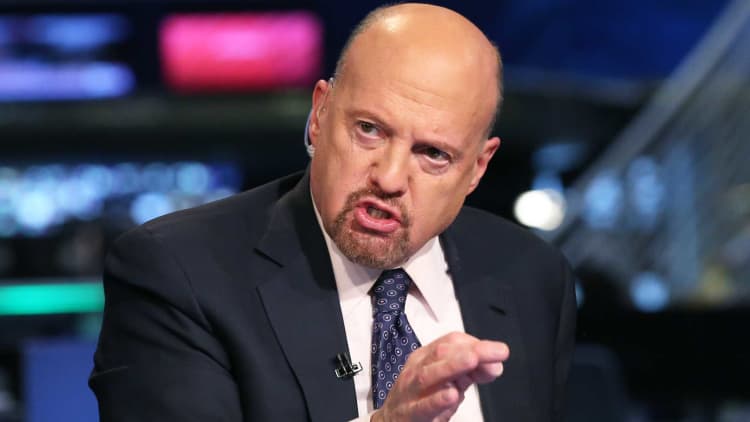
President Donald Trump appears to be willing to use the U.S.-China trade war to try to force Federal Reserve Chairman Jerome Powell to cut interest rates again, CNBC's Jim Cramer said Thursday.
Even with the election coming up next year, Trump is indicating that he's prepared to risk a recession and "it's Powell's job to keep us out," Cramer said on "Squawk on the Street." "The president is saying, 'We'll take it, we can handle it.'"
The "Mad Money" host was analyzing Trump's comments Wednesday, when the president told reporters that he was "the Chosen One" to take on China.
Trump has been blaming the Fed for holding back the economy not his tariffs. "The president is not backing down," said Cramer.
A White House spokesperson was not immediately available to respond to Cramer's comments.
Concerns about the U.S. economy are mounting as Washington gets ready to impose tariffs, effective Sept. 1, on nearly all of China's imports not already subject to duties. While the planned tariffs on some of the goods coming in from China were delayed until mid-December and others were canceled, the list remains long. On Thursday, Beijing said any more U.S. tariffs would lead to escalation.
At the same time, the Fed will consider whether to reduce the cost of borrowing money at its September meeting — two months after cutting rates for the first time in more than a decade. The market expects, with near certainty, that the central bank will cut rates again next month — a move Trump has repeatedly said is necessary.
In a sign that Wall Street is worried about whether the Fed can prevent a recession, the 10-year Treasury yield briefly inverted and went below the 2-year yield last week for the first time since before the 2008 financial crisis. It happened again Wednesday and Thursday. Such an inversion has preceded every recession over the past 50 years. However, on average, it takes up to two years for a recession to materialize.


